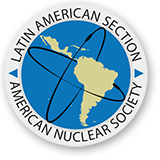1975 - 2025
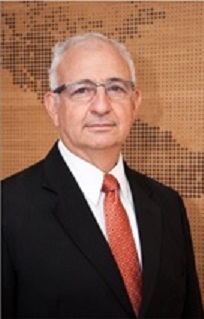
Ney Zanella dos Santos
President 2024-2025
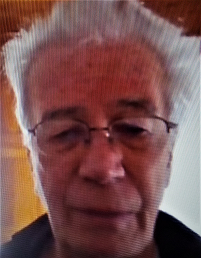
Osvaldo Calzetta Larrieu
President 2023-2024
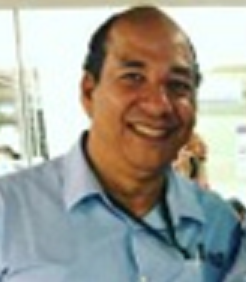
João da Silva Gonçalves
President 2022-2023
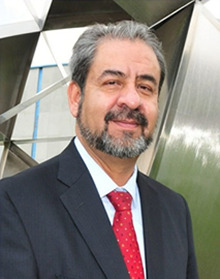
Javier C. Palacios Hernández
President 2021-2022
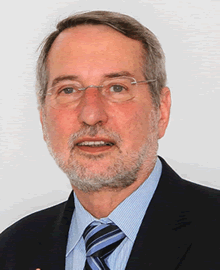
Marco A. S. Marzo
President 2020-2021
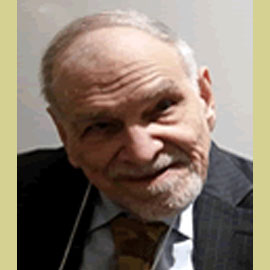
Jaime Pahissa Campá
President 2019-2020
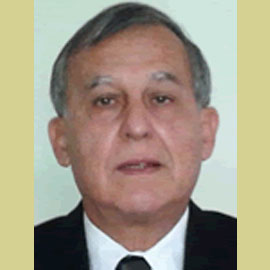
Orpet José Marques Peixoto
President 2018-2019
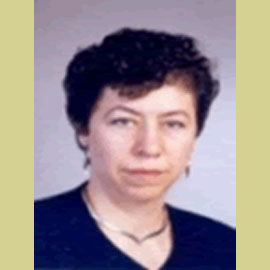
Lydia Concepción Paredes Gutiérrez
President 2017-2018
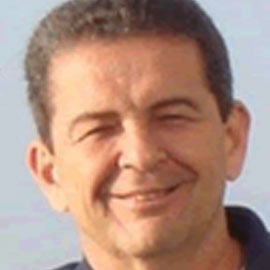
Leonam dos Santos Guimarães
President 2016-2017
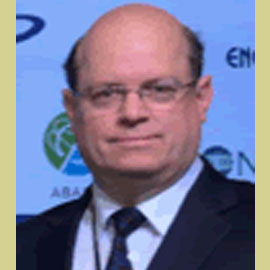
Julio Vergara Aimone
President Elect 2015-2016
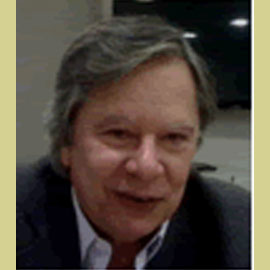
Alfredo Tranjan Filho
President 2014-2015
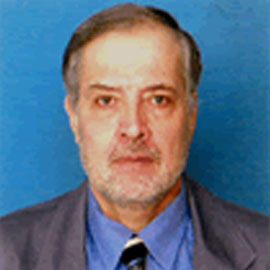
Jose Valentin Lolich
2013-2014
The LAS Symposium is undoubtedly the most important meeting of the Latin American nuclear sector.

Luiz Soares
Chair Elect - 2012-2013
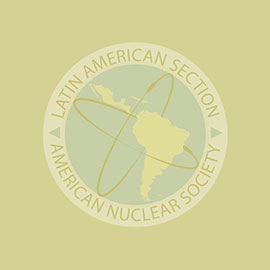
Fernando Lopez Lisana
2011-2012
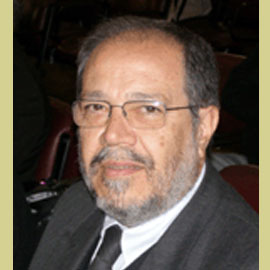
Odilon Antonio Marcuzzo do Canto
2010-2011
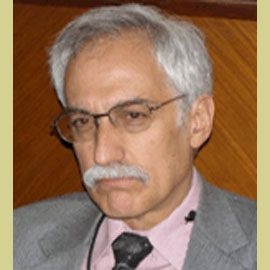
Héctor Otheguy
2009-2010
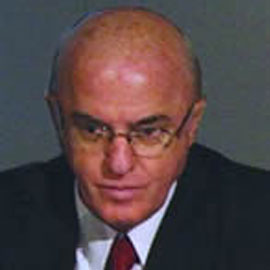
Othon Luiz Pinheiro da Silva
2008-2009
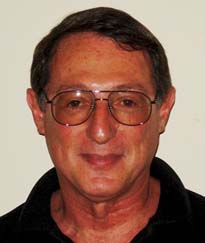
Dario Jinchuk
2007-2008
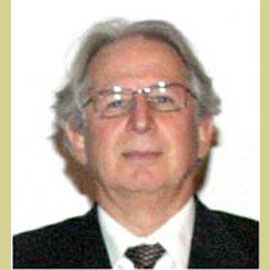
Claudio Rodrigues
2006-2007
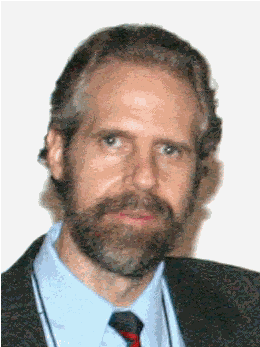
Juan Luis François
2005-2006
We are living exciting days, more than ever the nuclear energy “renaissance is close to a reality. There are two main drivers of this phenomenon: the climate change, due to the earth’s global warming, mainly caused by the emission of greenhouse gases from fossil fuels combustion, and the high international prices of oil and gas. The first is very closely related to the environment and the second to the economics; and both are very important dimensions of the sustainability of an energy source. The maturity of the nuclear industry, expressed in plant reliability (higher capacity factors) and operational safety, is also an important driver of the “new confidence in the nuclear industry. Recently we have seen how Finland, a country greatly concerned about the environment, after a very detailed study, has selected the nuclear option to increase the electric power capacity. Criteria such as cost, reliability and environmental issues were taken into account in their final decision. In Latin America the situation is similar to the rest of the world. Nowadays the economics and the environment are global issues, which affect the strategic decisions of the countries. In particular the energy sector is a strategic one, which strongly depends on these issues; we are also facing the high prices of the fossil fuels and the climate change disturbances. Some other local political decisions in Latin America, like the “nationalization of gas in Bolivia, have added a new element into the decision making process of the energy policies in countries like Argentina and Brazil. This new element, related to the security of the energy source supply, is becoming one of the key issues in the definition of the energy portfolio in the countries. Nuclear energy has demonstrated, over the years that it is a reliable source of energy, independent of the political disturbances around the world. This is why I am convinced that once more, the role of the LAS-ANS is very important at this moment, such as it has been over thirty one years of existence, promoting the deployment of nuclear energy and gathering the nuclear community of Latin America. Nuclear energy must play a new and very important role in the short term in Latin America, vis a vis the energy needs and the economical and environmental concerns. We as Latin Americans, facing similar technical, social and political issues, can share experiences and knowledge through LAS-ANS in order to work for the “renaissance of nuclear energy in our countries.
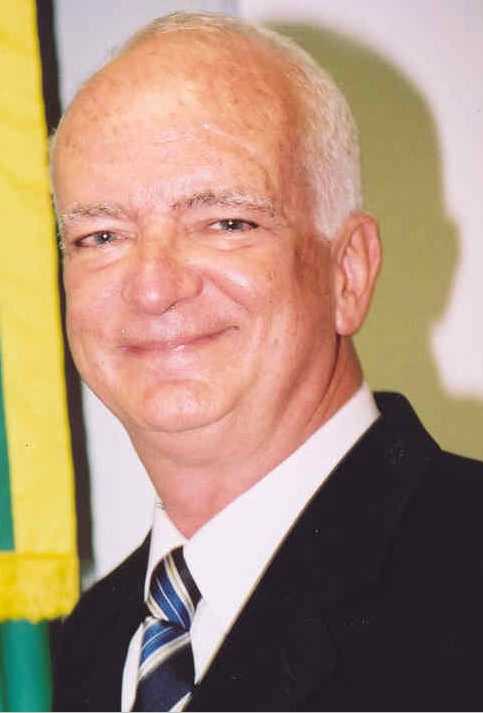
Zieli Dutra Thomá Filho
2004-2005
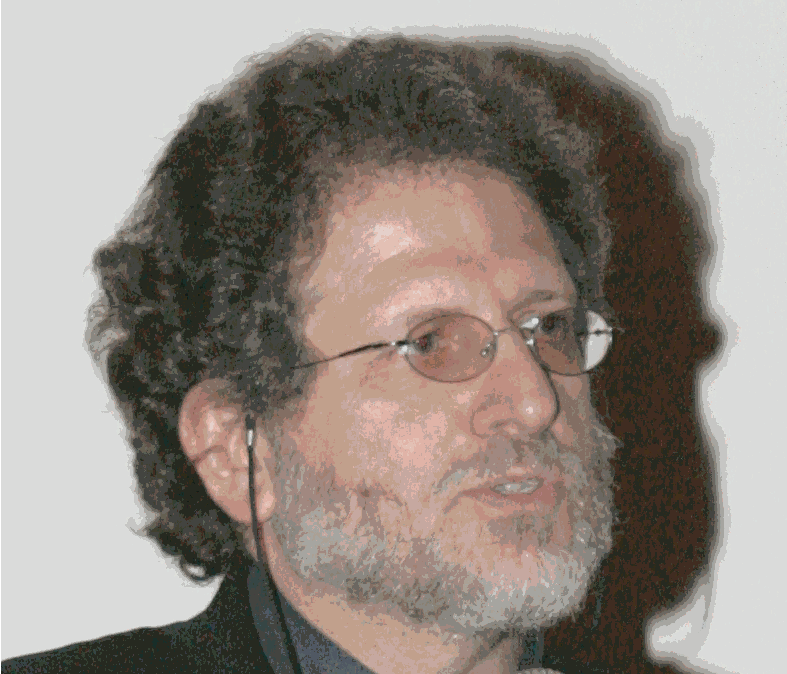
Roberto Hojman
2003-2004
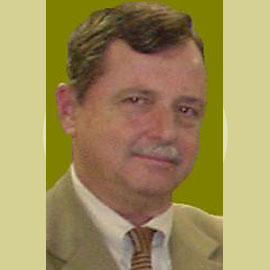
Fernando S. Henning
2002-2003
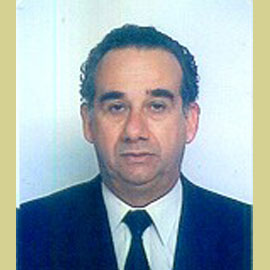
Roberto Omar Cirimello
2001-2002
LAS-ANS is the result of a pioneering effort of several professionals and executives of nuclear organizations of the region. The continuity over more than 25 years show that pursuing free and fair cooperation among peoples and countries gave an encouraging result of diffusion of nuclear activities. During the time when nuclear energy in our region reached low ebb periods LAS-ANS contributed to keep closely linked the nuclear communities of our countries and encouraged professionals and managers to pursue in their efforts to maintain the nuclear option open. Nowadays, due to the better prospect foreseen for nuclear energy, the role of LAS-ANS will be to strengthen the scope of its activity in the region and to enlarge the participation of other countries to become active partners in this endeavor. To be a part of LAS is a professional achievement.
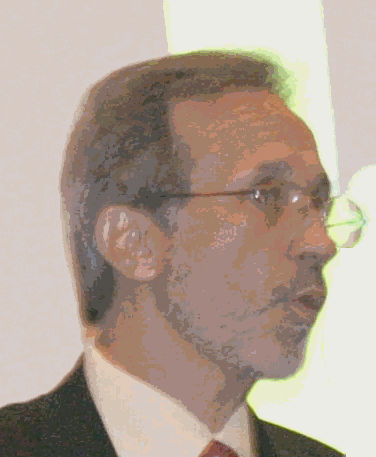
Antonio Carlos de O. Barroso
2000-2001
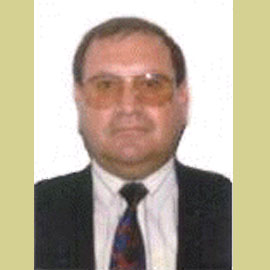
José Francisco Torres Ramírez
1999-2000
Looking at the 21st century, Latin America faces the challenges that the new millennium presents and these challenges can take on only with a change in mentality and with advanced technologies. Therefore the LATIN AMERICAN SECTION OF THE AMERICAN NUCLEAR SOCIETY is focused to innovate, develop and communicate a quality culture, safety and environmental protection based on the benefits that the use of Nuclear Energy provides to different areas with peaceful purposes, all with Latin American presence and participation. Promote extensive exchange of experiences in coordination with public and private organizations inside the nuclear community through the following activities: . Spreading the technological advances. . Participate in technological research. . Attending problem resolutions and consulting nuclear engineering related issues. . Foster mutual cooperation and work closer with in the nuclear community. . Organize meetings and congresses. . Continue promotional effort to increase number of collaborators. . Promote use of nuclear energy.
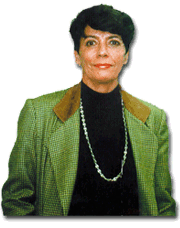
Olga C. R. L. Simbalista
1998-1999
In my opinion, the main role of the Latin American Section of the American Nuclear Society - LAS is to act as an integrating vehicle, non-governmental, of nuclear activities in the Americas. Since July 1998, LAS contributed to get together local nuclear societies of Argentina (Asociación Argentina de Tecnologia Nuclear - AATN), Brazil (Associação Brasileira de Energia Nuclear - ABEN), Mexico (Sociedade Nuclear Mexicana - SNM), Canada (Canadian Nuclear Society - CNS) as well as of the U.S. (American Nuclear Society - ANS) through meetings sponsored by LAS (Buenos Aires Nuclear Symposium and Washington Meeting of the Americas). This integration was reinforced, in Acapulco, in July 1999, during the International Joint Meeting on the Role of Nuclear Power to Mitigate Climate Change, co-sponsored by SNM, LAS, Federación Latino Americana de Sociedades de Protección Radiológica and Sociedad Mexicana de Seguridad Radiológica.

Oscar José Quihillalt (†)
1998-1999

Ayrton J. Caubit da Silva
1996-1997

Carlos Vélez Ocón
1995-1996
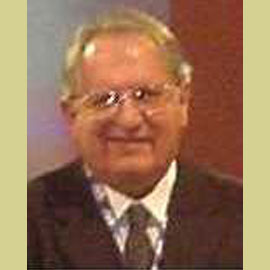
Pedro J. Diniz de Figueiredo
1994-1995
I think that the Latin America should have others organisations in other fields of activities, like the Latin American Section of ANS. It is a very privilegiated and unique forum for the nuclear business professionals. Several common problems and expectations were discussed and are frenquently discussed among the latin americans engineers and professionals. No other forum is available for such a discussion and interaction. During the period that I was president of LAS, I enphasized the important of developing the proper standard and regulations appropriated to every region. I still continue believing that commom regulations for the latin americans in the nuclear business would be a very strong point of common development. This policy would be of beneffit if others organisations in other fields of activities had the same common goal as the LAS.The Latin American Section of the ANS set a very good example how latin americans could work together in diferent areas of interest in benefitt of the whole Latin America.
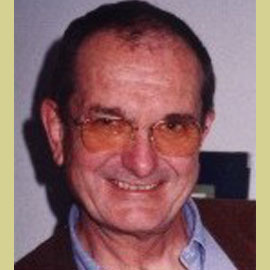
Julio A. Recalde
1993-1994
Which are the three sentences that provide the best description of the LAS/ANS' spirit, achievements and contribution to the community? An organization that has evolved from "representing the interests of the professionals in the nuclear arena" to "having reached a deserved prestige by representing and safeguarding the expectations of the Latin American community in as far as nuclear issues are concerned". An organization that, since its foundation, has always fostered and followed the path of a well-understood Latin American globalization. A fourth of a century of ceaseless and productive work in the hands of a group of people who have enriched each other within the framework of an agreeable environment of professional friendliness. And, finally, as far as I am concerned, "an organization of which I will always be proud to be a member".
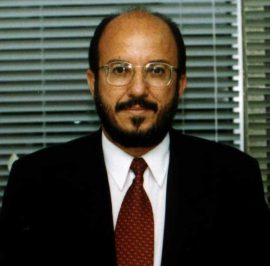
Cláudio B. M. Campos
1992-1993
Professional societies which have an international approach are one of the best ways to amplify the integration of people and organizations which have similar interests. Under this perspective I must say that I was very pleased to receive the invitation to join LAS in middle 80's. Having the opportunity to work together with my colleagues in LAS I was firstly involved in the task of integration of technical standards and after some years becoming LAS' president in 1992. I must say that it was a very enriching experience where I learned a lot and it helped me to improve my understanding and contacts in the globalization environment we are facing today in our personnal and professional lives. LAS is certainly an organization I will always be proud to be a member.

Rafael Fernández de la Garza
1991-1992

Evaldo Césari de Oliveira
1990-1991

Oscar Armando Quihillalt (†)
1989-1990

Márcio Costa
1988-1989
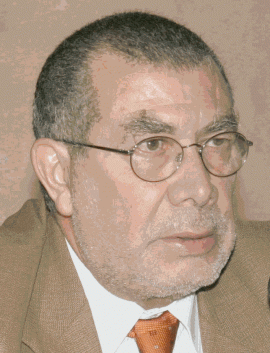
Miguel Medina Vaillard
1987-1988
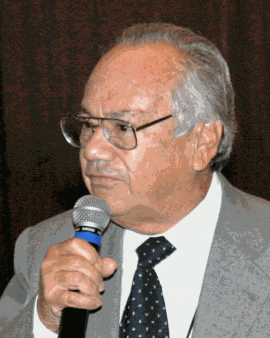
Ronaldo A. C. Fabrício
1986-1987
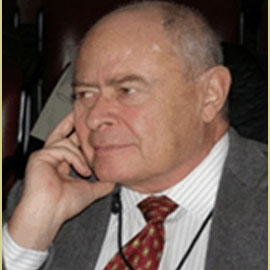
Juan Eibenschutz
1985-1986

Arthur Eduardo Gasparian (†)
1984-1985
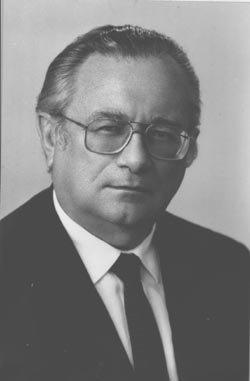
Witold P. S. Lepecki
1983-1984
LAS, along its more than one-quarter century of existence, fulfilled the following roles, which, in my opinion, are unique: By being the only regional organization of its kind, it integrated the nuclear communities of all the countries in the region; By choosing to be a Section of the American Nuclear Society, rather than an autonomous Society, it integrated both the Latin American and North American nuclear technical communities, contributing to mutual understanding, not only at the technical level, but also in matters that are politically delicate; By achieving, along the years, to represent Latin America with equal weight to other regions of the world in international organizations (e.g., INSC), it contributed, in an essential way, to project its nuclear technical community in the wider world-wide scene.

Jorge Oscar Cosentino (†)
1982-1983
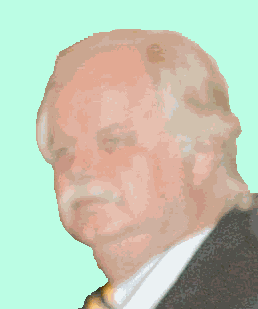
Antonio E. F. Müller
1979-1981

José Ribeiro da Costa (†)
1978-1979

Sérgio de Salvo Brito (†)
1977-1978
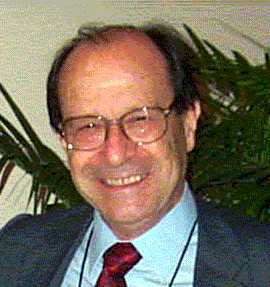
Jorge Spitalnik
1975-1977 / 1981-1982
The Latin American Section of ANS has been able to gather, in its membership, an important portion of the professional and entrepreneurial nuclear community of Latin America. This feature has attracted to the Section firms and individuals from other regions of the world who share common interests and maintain business activities in Latin America.In this way, the Section has the means to serve as a forum of information exchange and individual relationship in a broad array of nuclear activities within a very large geographical area. This has been the result of an effort of almost a quarter of a century, which has allowed a continuous expansion of the LAS/ANS influence, not only within the Latin American countries, but also around the world through its active promotion of, and participation in international organizations like the INSC (International Nuclear Societies Council) and the PNC (Pacific Nuclear Council).
